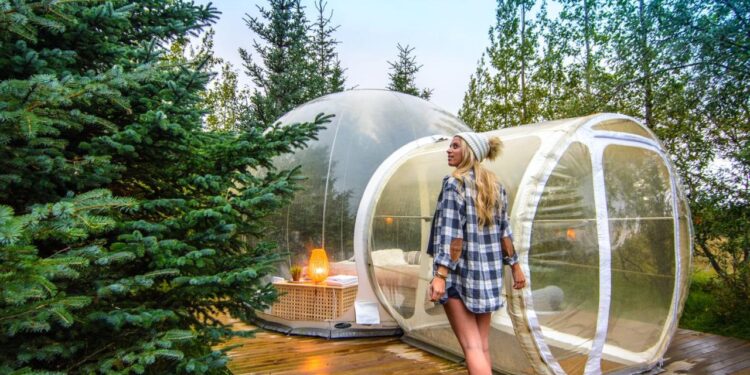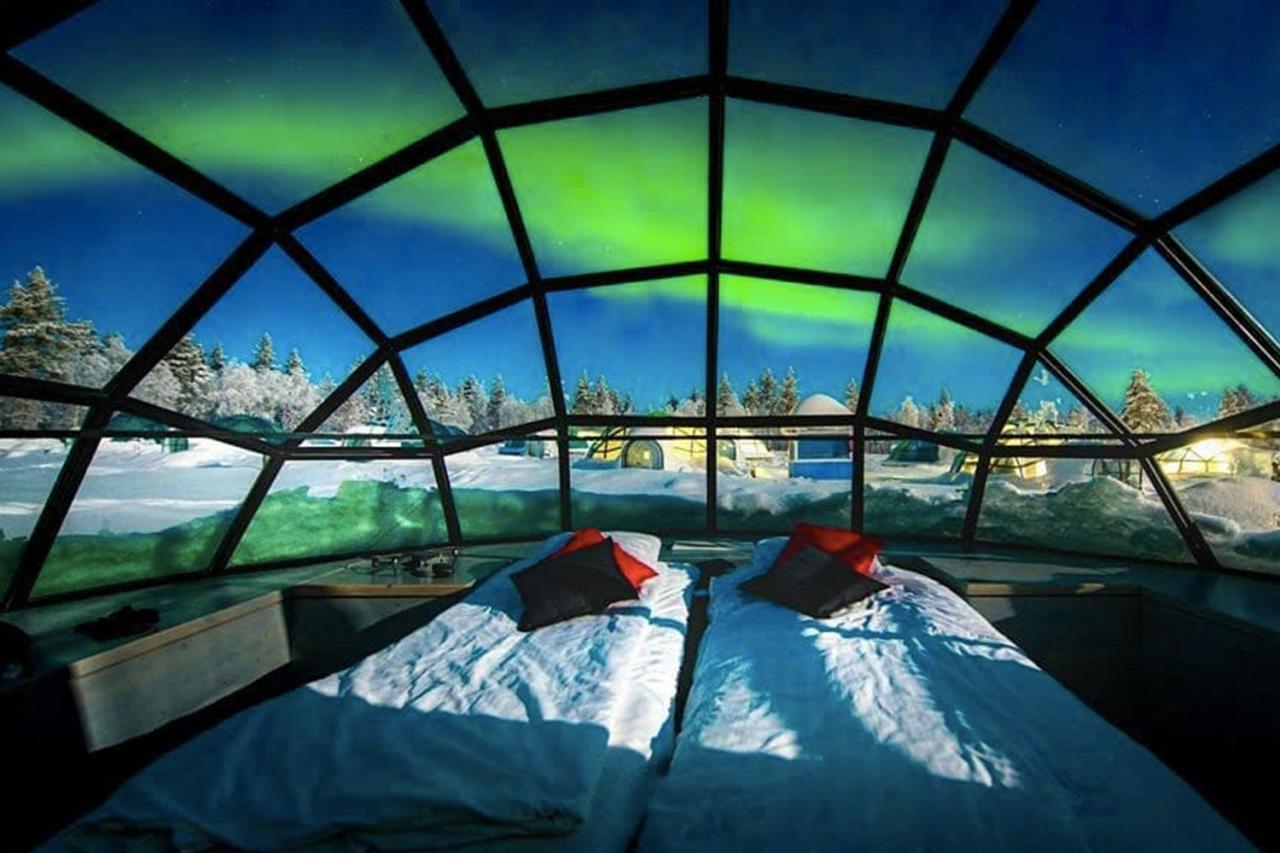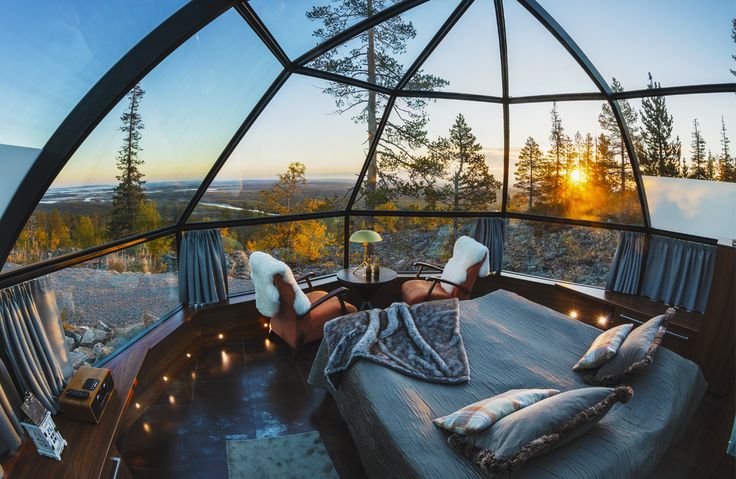Unique Hotel Stays: Redefining Experiences
The concept of a “hotel stay” has evolved dramatically. No longer are travelers content with just a bed and a bathroom; they crave immersive experiences, unique narratives, and stays that truly reflect the essence of their destination. This comprehensive article delves into the burgeoning world of unique hotel experiences, exploring how properties around the globe are pushing boundaries to offer more than just accommodation. We’ll uncover the driving forces behind this shift, the innovative trends shaping the industry, and what discerning travelers can expect from these extraordinary lodging options.
Beyond the Standard: The Quest for Unforgettable Moments
For decades, hotels primarily served as functional spaces—places to rest, recharge, and conduct business. While comfort and convenience remain important, a new wave of traveler, particularly those seeking luxury and bespoke journeys, are looking for much more. They desire an emotional connection, a story to tell, and a stay that becomes an integral part of their overall travel adventure. This fundamental shift is fueled by several key factors:
A. The Desire for Authenticity and Local Connection
Modern travelers, especially the affluent, are increasingly wary of generic, cookie-cutter experiences. They yearn for genuine encounters that offer a deeper insight into the local culture, traditions, and way of life. This yearning manifests in hotels prioritizing:
- Architectural Storytelling: Properties that are either historically significant (like repurposed castles or ancient monasteries) or newly built with designs that deeply reflect local architectural styles and cultural motifs. Staying in such a place feels like stepping into the destination’s soul.
- Locally Inspired Design and Art: Hotels are moving away from imported, generic decor. Instead, they collaborate with local artisans, use indigenous materials, and showcase regional art, allowing guests to immerse themselves in the local aesthetic even within their rooms.
- Cultural Programs and Workshops: Beyond basic tours, many unique hotels offer hands-on experiences. Imagine a hotel in Bali providing traditional Batik weaving workshops, or a property in Peru arranging private lessons on Andean flute playing with a local musician. These programs foster genuine cultural exchange.
- Farm-to-Table Culinary Experiences: The focus on local extends to dining. Hotels are forging direct relationships with local farmers, fishermen, and producers to offer menus that highlight seasonal, regional ingredients, providing guests with an authentic taste of the destination. Some even have their own organic farms.
B. The Demand for Experiential Stays and Adventure
Travelers are no longer content with passive observation; they want to be active participants in their journeys. Unique hotels cater to this by offering:
- Integrated Activity Programs: Properties aren’t just near attractions; they often have their own curated adventure programs. This could be a hotel in Iceland offering guided glacier hikes and Northern Lights tours, or a resort in Costa Rica providing direct access to zip-lining and rainforest treks, complete with expert guides.
- Theme-Based Accommodations: Some hotels lean into a specific theme, creating an immersive world for their guests. Think hotels designed like spaceships, underwater hotels, or properties where every room is a fantastical, art-installation experience. These stays become the adventure itself.
- Wildlife Encounters: For nature enthusiasts, unique hotels often provide unparalleled access to wildlife. This might involve safari lodges where animals roam freely outside your tent, or properties situated near marine reserves offering guided snorkeling or diving with local species. Ethical wildlife interaction is a key consideration here.
- Off-Grid and Wilderness Lodges: For those seeking true escape, remote lodges in pristine wilderness areas offer a chance to disconnect from urban life and reconnect with nature. These often feature rustic yet luxurious accommodations and guided excursions into the wild, from bear watching in Alaska to gorilla trekking in Rwanda.
C. The Pursuit of Wellness and Holistic Rejuvenation
Beyond superficial spa treatments, modern travelers seek profound well-being experiences that integrate into their entire stay. Unique hotels are responding with:
- Immersive Wellness Retreats: These are not just hotels with a spa; they are dedicated wellness sanctuaries offering multi-day programs focused on specific health goals. This could include detox programs, stress reduction through mindfulness, fitness boot camps, or spiritual journeys led by resident gurus or healers.
- Nature-Integrated Healing Spaces: Properties designed to maximize the healing power of nature. Imagine open-air yoga pavilions overlooking the ocean, meditation gardens with natural waterfalls, or forest bathing trails designed for sensory immersion.
- Specialized Therapeutic Treatments: Moving beyond standard massages, these hotels offer bespoke therapeutic treatments. Think traditional indigenous healing rituals, advanced hydrotherapy circuits, sleep clinics, or personalized nutritional counseling with resident dietitians.
- Mind-Body Connection Programs: Incorporating elements like sound healing, breathwork classes, art therapy, or even culinary workshops focused on healthy eating, these programs aim to balance guests’ physical and mental states.
Innovative Architectural Marvels and Design Concepts
The physical structure of a unique hotel often plays a starring role in its appeal. Architects and designers are constantly pushing the boundaries of what’s possible, creating structures that are as much attractions as they are accommodations.
A. Underwater Hotels: A Glimpse into the Blue Abyss
One of the most fantastical concepts, underwater hotels offer an unparalleled opportunity to live among marine life. Imagine falling asleep to the gentle glow of the ocean and waking up to schools of fish swimming past your window.
- Submerged Suites: These are self-contained rooms or pods that are fully submerged, often with panoramic acrylic windows offering breathtaking views of coral reefs and marine ecosystems.
- Eco-Conscious Design: Many underwater hotels are designed with minimal environmental impact, often contributing to marine conservation efforts through research and reef restoration.
- Exclusive Experiences: Access to these hotels is highly exclusive, often involving private transfers and bespoke services tailored to the unique environment.
B. Treehouse Hotels: Sleeping in the Canopy
For those who dreamt of treehouses as children, these hotels offer a sophisticated, often luxurious, realization of that fantasy. Perched high in the canopy, they provide unparalleled views and a sense of secluded intimacy.
- Seamless Integration with Nature: Designed to minimize their impact on the trees, these structures often use sustainable materials and blend harmoniously with the surrounding forest.
- Elevated Perspectives: Guests enjoy unique vantage points, observing local wildlife and landscapes from an elevated perspective, often with private balconies or viewing decks.
- Rustic Luxury: While embracing a natural aesthetic, treehouse hotels typically feature high-end amenities, comfortable furnishings, and often gourmet dining options.
C. Ice Hotels: A Winter Wonderland Experience
Constructed entirely from snow and ice, these ephemeral hotels offer a truly unique winter experience. They are rebuilt each year, making every stay a singular event.
- Artistic Ice Sculptures: Beyond just beds, the interiors are often adorned with intricate ice sculptures and illuminated designs, creating a magical, otherworldly ambiance.
- Temperature Management: Despite being made of ice, guests sleep warmly in specialized thermal sleeping bags on ice beds topped with reindeer hides. Common areas might be heated.
- Seasonal Availability: Due to their construction, these hotels are only open for a limited period during the coldest months of the year, adding to their exclusivity.
D. Repurposed Heritage Properties: A Blast from the Past
Breathing new life into historic buildings, these hotels offer a tangible connection to the past, blending original architectural features with modern comforts and design.
- Castles and Palaces: Staying in a centuries-old castle in Europe or a maharajah’s palace in India offers an unparalleled sense of grandeur and historical immersion.
- Former Monasteries and Churches: Transformed into serene retreats, these properties often retain their spiritual ambiance while offering contemporary luxury.
- Lighthouses and Forts: Unique coastal or defensive structures converted into boutique accommodations, providing stunning views and a sense of romantic isolation.
The Role of Technology in Crafting Unique Experiences
While unique hotels emphasize authenticity and nature, technology plays a crucial role behind the scenes, enhancing guest comfort, personalization, and operational efficiency without detracting from the unique aesthetic.
A. Personalized Guest Journeys through AI
Artificial intelligence is increasingly used to tailor every aspect of a guest’s stay, often before they even arrive.
- Predictive Preferences: AI analyzes past stays, booking patterns, and even social media activity to anticipate guest needs, from preferred pillow types to dietary restrictions, ensuring a seamless and personalized experience upon arrival.
- Curated Activity Recommendations: Based on individual interests, AI can suggest bespoke activities, local excursions, or wellness programs, ensuring guests make the most of their unique surroundings.
- Seamless Digital Check-in/Out: Allowing guests to bypass front desks, check in via an app, and use their phone as a room key, minimizing friction and maximizing convenience.
B. Immersive Digital Art and Projections
Some cutting-edge hotels are using technology to create dynamic, ever-changing environments within their spaces.
- Interactive Walls and Floors: Rooms equipped with projection mapping technology can transform into different landscapes, art galleries, or even replicate natural phenomena like a starlit sky, allowing guests to customize their immersive experience.
- Personalized Soundscapes: Integrated audio systems that can play natural sounds (e.g., rainforest, ocean waves) or personalized music to enhance relaxation or stimulate creativity, tailored to the guest’s mood.
C. Sustainable Technology for Eco-Conscious Stays
Technology is vital in helping unique hotels maintain their eco-friendly credentials.
- Smart Energy Management Systems: Automatically adjusting lighting, heating, and cooling based on occupancy and external conditions, significantly reducing energy consumption.
- Advanced Water Recycling: Implementing sophisticated systems to treat and reuse water, especially crucial for properties in remote or water-stressed regions.
- Waste Reduction and Management: Utilizing AI and data analytics to minimize food waste, optimize recycling programs, and manage composting efforts efficiently.
The Human Touch: Unforgettable Service and Storytelling
Despite technological advancements, the essence of a truly unique hotel experience often boils down to the exceptional human element. The staff’s ability to anticipate needs, share local insights, and create genuine connections elevates a stay from memorable to transformative.
A. Expert Storytellers and Local Guides
Staff in unique hotels often serve as more than just service providers; they are custodians of local knowledge and culture.
- Curated Narratives: Employees are trained to share the history of the property, the local legends, and the unique aspects of the destination, transforming a stay into an educational and engaging journey.
- Personalized Expeditions: Guides who are not just knowledgeable about the local environment but also passionate storytellers, leading guests on bespoke adventures (e.g., wildlife tracking, foraging, stargazing) that offer deep insights.
B. Anticipatory Service and Bespoke Hospitality
The highest level of luxury service in unique hotels is characterized by its anticipatory nature.
- Intuitive Guest Relations: Staff are empowered to go above and beyond, anticipating guest needs before they are expressed, from preparing a warm bath after a long hike to having a favorite drink ready.
- Seamless Integration of Services: From arrival to departure, every interaction is designed to be effortless and personalized, ensuring a truly stress-free and enjoyable experience. This includes private transfers, in-room check-ins, and flexible dining times.
C. Community Integration and Ethical Employment
Unique hotels often pride themselves on their deep ties to the local community, which extends to their employment practices.
- Local Talent Development: Prioritizing the hiring and training of local residents, providing sustainable employment opportunities and fostering community pride.
- Cultural Exchange Programs for Staff: Enabling staff to share their local traditions and knowledge with guests, creating a more authentic and enriching experience for everyone.
The Future Landscape: What’s Next for Unique Hotels?
The innovation in unique hotel experiences shows no signs of slowing down. Several exciting trends are poised to further redefine luxury and bespoke travel in the coming years.
A. “Sleep Tourism” and Bio-Hacking Accommodations
As stress levels rise, hotels are increasingly focusing on optimizing guest sleep and overall biological well-being.
- Sleep-Optimized Rooms: Featuring advanced air purification systems, soundproofing, blackout blinds, specialized mattresses (e.g., smart beds that adjust firmness), and lighting designed to regulate circadian rhythms.
- Bio-Hacking Facilities: Offering cutting-edge wellness technologies like cryotherapy chambers, infrared saunas, hyperbaric oxygen therapy, and personalized supplement regimes, all integrated into the hotel experience to enhance physical and mental performance.
- Digital Detox Experiences: Hotels designed specifically to encourage a complete disconnection from screens, providing alternative activities like journaling, creative arts, and profound nature immersion, supported by minimal or no Wi-Fi access in rooms.
B. “Pop-Up” and Transient Hotels
Embracing the temporary and exclusive, these hotels appear for limited periods in unexpected locations, offering ultra-exclusive experiences.
- Temporary Wilderness Camps: Luxury tented camps that are set up in remote, pristine locations for short seasons (e.g., during specific wildlife migrations or cultural festivals) and then completely dismantled, leaving no trace.
- Repurposed Urban Spaces: Hotels that temporarily take over abandoned buildings, art galleries, or industrial spaces in urban centers, transforming them into cutting-edge, design-focused accommodations for a limited run, creating a buzz and sense of urgency.
C. Space-Themed and Zero-Gravity Inspired Stays
While actual space hotels are still futuristic, “space-themed” hotels are already emerging, offering immersive experiences that simulate elements of space travel.
- Simulation Environments: Rooms designed to mimic spacecraft interiors, complete with interactive screens displaying “views” of Earth from orbit, and even simulated low-gravity experiences in dedicated zones.
- Astronaut Training Recreations: Offering guests the chance to try out elements of astronaut training, such as high-G centrifuges or virtual reality spacewalk simulations, blurring the lines between leisure and immersive learning.
D. Hyper-Local Micro-Hotels
Focusing on extreme integration with a specific neighborhood or micro-community.
- Scattered Site Hotels: A single “hotel” might consist of several uniquely designed rooms or suites spread across different historical buildings within a very small, walkable district, each offering a distinct local flavor and direct interaction with the community.
- Artisanal Collaborations: Each room might be designed by a different local artist or furnished with bespoke pieces from local craftspeople, turning the entire property into a living gallery and a testament to local talent.
- Community-Led Experiences: The hotel might act as a hub for local events, workshops, and gatherings, truly embedding guests within the fabric of the neighborhood, facilitated by local residents.
Conclusion
The evolution of hotels into unique experiential destinations signifies a fundamental shift in how we travel and what we value. It’s no longer just about where you sleep, but the stories you create, the connections you forge, and the profound impact a place has on your senses and your soul. From the depths of the ocean to the heights of the forest canopy, from ancient castles to futuristic space simulations, the industry is tirelessly innovating to meet the desires of a new generation of travelers who seek more than just comfort—they seek transformation, adventure, and unparalleled authenticity. The future of hotel stays promises to be as diverse, imaginative, and exciting as the world itself, continually redefining what it means to truly experience a destination.









